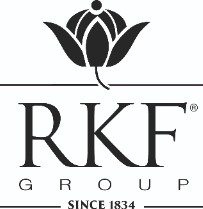
TRISTAN RODRIGUEZ, VICE-PRESIDENT, HORUS: "EVERY NEW COLLECTION IS A CHALLENGE"
In the competitive world of taps and fittings, Horus, a brand of the Kramer Group, has carved out a place for itself in the luxury taps and fittings sector. |
 |
TRISTAN RODRIGUEZ, VICE-PRESIDENT, HORUS: "EVERY NEW COLLECTION IS A CHALLENGE"
In the competitive world of taps and fittings, Horus, a brand of the Kramer Group, has carved out a place for itself in the luxury taps and fittings sector. |
Catégorie : Monde - Interviews et portraits
- Produits et Fournisseurs
- Fournisseurs - Interviews
Interview de Sonia Taourghi le 29-02-2024
 Tristan Rodriguez, Vice President for Horus, and Manuel Rodriguez President of Kramer Group
Crédit photo © Groupe Kramer - Horus
The company diversified to become a holding company with its best-known property, catering and industrial divisions. Headed by Manuel Rodriguez and his son Tristan, the company became a family affair. Once again, it was by a roundabout route that another Rodriguez found his way to the factory, swapping the toga for the suit of an industrial entrepreneur.
Despite his leadership in manufacturing, and his involvement in the success of major brands, Kramer is a player in the shadows. It is still a long way from the Horus epic, created by Gilles Nortier and managed by François Retailleau, which brought the group out into the open. "It's always complicated manufacturing for others", explains Tristan Rodriguez. The purchase of Horus enabled the group to manufacture for itself, at last.
A flagship for "Made in France" and a defender of the values of French industry, Horus has made its mark on the most demanding projects. A veritable bathroom accessory, taps have become a key element in the style of bathrooms in both private homes and hotels. Negresco in Nice, Ashford Castle in Ireland, Plaza Athénée or Saint James in Paris, Ritz Carlton in Vienna... These are just some of the establishments with which Horus has had the honour of collaborating.
With a medium-term target of €15 million, Horus wants to keep its mission intact and ensure that it maintains a balance between excellence, market demands and CSR issues in the management of its activities. Tristan Rodriguez, Vice-President for Horus, confirms to the Journal des Palaces the ambitions for the company, based on asserted leadership, diversification, artistic collaborations, attentive listening to the market, and technological advances.
Journal des Palaces: Kramer is first and foremost an industrial success story. How did the shift to luxury taps come about?
Tristan Rodriguez: My father and I have a real feeling for taps, but a discussion led us to ask ourselves whether we should continue to expand the group, push for external growth and believe in it. Or sell. We chose to bet on the future.
We were known as an industrial group, but not as a brand. When we bought Horus, which specialises in luxury and top-of-the-range products, it worked very well very quickly because there are real connections. Ultimately, it's a cross between craftsmanship and the striking power of an industrial company. That respect for craftsmanship is also what motivated the recent acquisition of the Jacob Delafon production site. The history of this brand, owned by Kohler, includes the first traces of ceramic manufacture in 1899. This acquisition now enables us to build our own ceramics and make Kramer a specialist manufacturer of taps and sanitary ceramics made in France. We want to establish ourselves as a company whose mission is to promote, pass on and strengthen French know-how.
We have a brand for volume, Kramer, and Horus is the luxury part that allows us to offer the best. And to bring this project to fruition, we need volume and machines that work.
How would you define Horus in 3 words?
Horus is about elegance. We advocate the 'quiet luxury' that is so important to us, in the French spirit and not in a flashy way.
The brand has been awarded the Entreprise du Patrimoine Vivant (Living Heritage Company) label, which Horus chairs for the Grand Est region. This label promotes high-quality French manufacturing and the preservation of French know-how.
Luxury means exclusivity. It's not about the price, but really about the exclusive emotion that Horus brings to its customers through the personalisation of its products and the level of service it provides.
What distinguishes Horus from other top-of-the-range taps?
What makes Horus different is our style, which is classic and timeless. These are recurring trends that go very well with contemporary designs. We also have stainless steel and minimalist products, but classic remains our strength.
Our customers also come to Horus for a level of excellence. We have a unique level of expertise. Our aim is to maintain our values of elegance and exclusivity. We redid the Marignan hotel with Pierre Yovanovitch on the Champs Élysées, for which we had to make a special spout and customise the taps, and that's part of our service.
Our services are also what set us apart. We have hotels that come back 20 years later and we are able to offer replacement parts or a product restoration service.
The strength of the group behind Horus is a real plus. We benefit from all the laboratories, hydraulic and acoustic, and on the durability of products and surface treatments. The synergy between the different brands and production sites means that we can manufacture whatever we want in complete autonomy, while preserving the quality of our products. When we think of luxury, we think of France, and therefore made in France, and we want to remain consistent with the ecological challenges of corporate social responsibility. We are pioneers in this approach.
Whatis Horus target market?
Gilles Nortier, the founder of Horus, was passionate about falconry, and his friendships extended to personalities and princes in the Emirates. It all started with a demand for gold taps, and from there, made-to-measure service has remained in the brand's DNA. We attract people who love decorating, and working with interior designers and specifiers comes naturally. They trust us with their customers' projects.
I always compare taps to fashion accessories. When you put together an outfit, you pay particular attention to the shoes, the bag... And when you look at a bathroom, it's incredible what a tap can bring to a bathroom. It's the smallest detail that makes all the difference.
Ceramics will play the same role. Since we started working with ceramics, we've realised that it has the same power in the bathroom.
By necessity, our future is more than ever focused on interior design, architects, specifiers and yachting, which requires special technical skills.
Today, luxury hotels are among our biggest customers, and their requirements are the same as those for the prescription sector. What will make the difference is customisation. On ceramic tablets, we are regularly asked to incorporate the hotel logo, for example. The more demanding the hotel, the more exclusive the request.
What enables us to respond to this quest for excellence is our depth of range in terms of technical requirements, product customisation and project management. Every detail is important, so we stay in touch with our customers over the long term, listening and responding to every need.
What is the extent of your international reach? Which countries have the greatest penetration?
Today, 50% of our sales are generated internationally. The United States, our first target, has become our biggest international market, thanks to Waterworks, which distributes us under its name, and has enabled us to get our foot in the door. I think the appeal comes from our variety, particularly in the classic segment. This success has enabled us to distribute our products via another distributor, but under our Horus brand.
Japan is our second biggest international market. In terms of style, the trend is mixed, with less is more. There's a Japanese design, a Japanese way of doing things. Bathing is more ritualised.
We have recently started working in the United Arab Emirates. We are very selective and work on projects that match our DNA.
Overall, Horus is present in 40 countries across all continents.
What are the stages involved in launching a new collection?
When we think about a new collection, we really have to look back at previous collections. We ask ourselves how we can surprise our customers or what their needs are. So we ask ourselves what market we're going to target. If there's a type of product that needs to be brought out to meet a need, it's our Concept department that takes charge of it and makes sure we adapt to the trends of the moment.
On the other hand, you won't find our contemporary and classic collections anywhere else, and there's always the question of whether to do it in-house or with an external partner. A collaboration can bring meaning and a message, as with Marc Hertrich at the Negresco.
Horus is expected to be at the forefront of product development. We recently launched the Zéphyr collection, which is a real technical feat. In principle, we haven't invented anything, but this product represents the great streamline, the quest for aerodynamics, because we had to make specific tools, particularly for the surface treatment. At the moment, we're working on new eco-friendly ceramic products. We are always keen to consume less in the manufacture of our products and to be transparent in our carbon footprint. We really want to promote the circular economy, and this is an important matter for our customers too.
 Horus taps and fittings - Bathroom at the Negresco
Crédit photo © Groupe Kramer - Horus
 Horus taps and fittings - Bathroom at the Marignan Hotel
Crédit photo © Groupe Kramer - Horus
 Horus taps and fittings - Bathroom at the Ashford Hotel in Ireland
Crédit photo © Groupe Kramer - Horus
|
|






